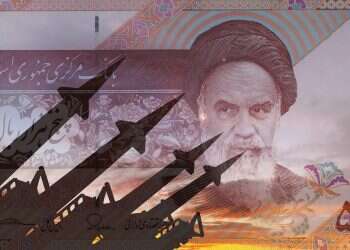If the escalating dynamics in the Gaza Strip in recent weeks persist, Israel will need to decide whether to change its restrained policy toward Gaza.
Until now, Israeli policy has been aimed at preventing any escalation. The military responds to every attack, but directs its response at Hamas, which rules the strip, so that it will act to rein in the other terrorist organizations there. This policy has been successfully implemented since Operation Protective Edge in 2014.
The grind of recent weeks, starting with the Israel Defense Forces' detonation of a terror tunnel inside Israel that killed a number of terrorists and continuing with U.S. President Donald Trump's speech recognizing Jerusalem as the official capital of Israel, has made an impact.
Attacks from Gaza have increased significantly, albeit not to the extent that they disrupt the day-to-day lives of residents near the border. Still, the targeted attack on a ceremony marking what would have been the 24th birthday of Staff Sgt. Oron Shaul, the Golani Brigade soldier who was killed in Gaza in 2014 and whose body is still held by Hamas, is no random attack.
Radical Salafist elements in the Gaza Strip have been largely responsible for the rocket fire, and Hamas has acted and continues to act against them. However, Hamas has been having a hard time acting against Islamic Jihad, which has been responsible for the rest.
In recent years, Hamas has made the strategic decision to cooperate with Islamic Jihad, to embrace it so as not to be challenged by its Islamist rival. It has allowed organization members to dig terror tunnels and establish guard towers on the border with Israel. This has increased the threat posed by Islamic Jihad, which has some 10,000 fighters and an impressive arsenal of rockets and other weapons.
In recent weeks, Hamas has exerted significant pressure on Islamic Jihad to avoid an escalation, but those efforts have been only partly successful. Islamic Jihad has its own drivers: the deaths of its members in the detonation of the terror tunnel, pressure from its Iranian patron to act, and commanders who, having grown tired of the quiet, are apparently looking for action.
Islamic Jihad has it pretty easy. Unlike Hamas, it does not need to concern itself with day-to-day life in Gaza and can instead focus on the struggle against Israel. This tension between the two groups will also determine what follows: If Hamas prevails, there will be calm. If Islamic Jihad continues to act, it could lead to an escalation.
Israel will need to decide whether to continue to pound Hamas, so that it in turn pounds the other terrorist organizations, or begin to act directly against Islamic Jihad. There is no easy answer, because Israel's decision could lead to an escalation, which is exactly what we are trying to avoid.
For now, Israel is avoiding any decision on the matter. Even the unusual attack carried out by the IDF on Thursday, apparently against a terror tunnel, was calculated so as not to lead to a clash. The hope is that Hamas will do the necessary work to rein in the culprits, so that Israel will be able to continue to carry out its top priority: completing the subterranean barricade that will deprive Hamas and Islamic Jihad of their tunneling capability.
A decision has not yet been made on Gaza. In the meantime, it seems the weather is on Israel's side. The wintry weather will no doubt cool tempers, at least for the weekend. After that, all sides will revert to their original positions and face the same dilemmas.



